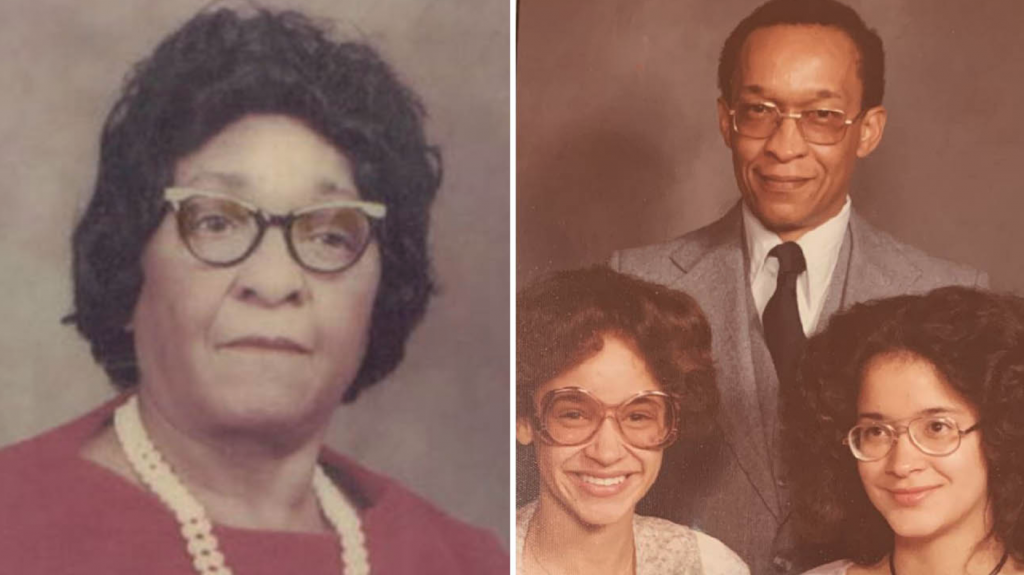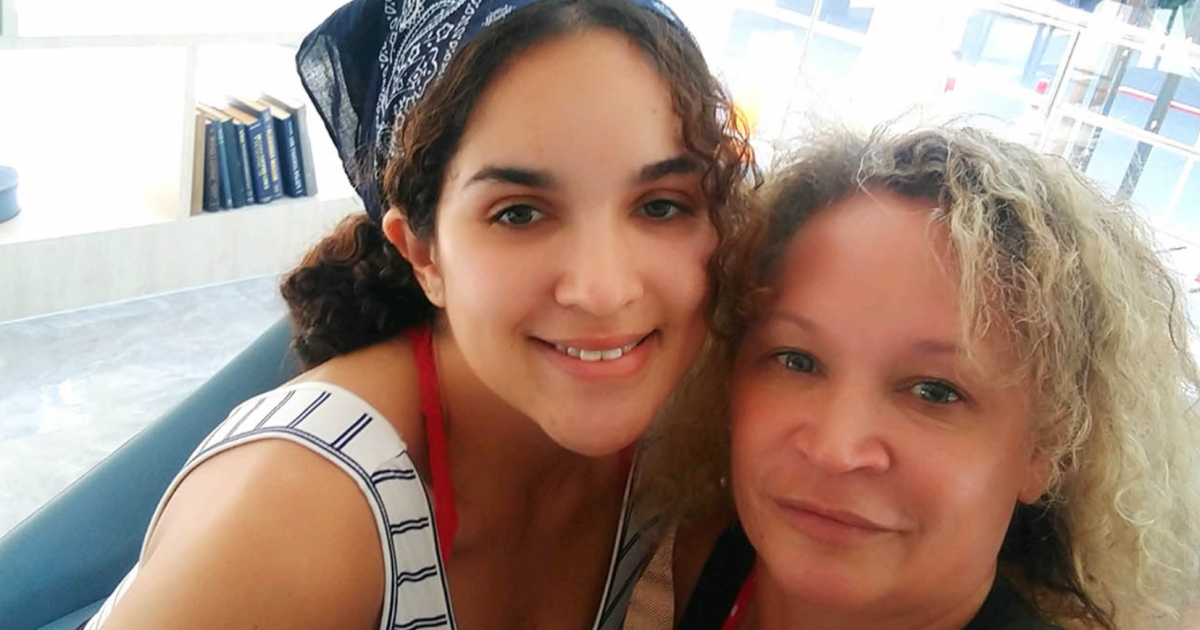Breaking the Cycle
- Tamara Bumpus, a nurse practitioner in Toledo, Ohio, is breaking the cycle of silence in her family.
- The breast cancer survivor, who was diagnosed in 2016 and has since been treated for the disease, is the first to speak out among her father’s side of the family where the history of breast cancer has been prevalent for 100 years.
- Between 5% and 10% of breast cancer cases are thought to be hereditary. And about 10% of patients who undergo genetic testing will test positive for the BRCA1 or BRCA2 gene.
Tamara’s great-grandmother, Thelma Mae Crowe Bumpus, died in 2003 of breast cancer at age 97, but had kept it a secret.
Read More
Tamara feels it is her duty to change the course of her family’s future well being. “Nobody ever wants to talk about the 'Big C,' but if we don't, our loved ones may not know they could be at risk." Namely, her daughter.
'Genetic Testing Saved My Life:' Joanna Gutermuth's Story
The determined mother has a 17-year-old with whom she has discussed the highly important topic, along with anyone else who will listen.
"By letting others know about our family history of cancer, they can let their doctors know that they're at risk for it, too, and take steps at getting screenings done earlier,” the patient advocate said.
Genetic Testing for Breast Cancer
There are different types of genetic testing. There is testing for the DNA in our cells which shows what bad mutations we might have inherited or that could be passed along to our blood relatives. This testing for hereditary cancer risk requires your approval.
Then there is genetic testing of the tumor. This has been approved for payment by Medicare and has become standard practice, but does not require your approval.
Learning About Genetic Testing
For some patients, testing for a hereditary cause of cancer may be appropriate. This means determining whether you inherited an increased risk of cancer from your mother's or your father's side of the family, like Tamara. Your doctor will discuss your family history of cancer with you in the context of the type of tumor you have and your age at diagnosis. Hereditary genetic testing is usually done with a blood or saliva test.
Related: Genetic Testing for Breast Cancer: What is This Type of Test? And What Do My Results Mean?
The second test involves the genetic sequencing of your tumor. These genetic changes can be inherited but most arise during a person's lifetime. This process usually involves examining a biopsy or surgical specimen of your tumor. This testing can lead to decisions on drugs which might work against your cancer.
What Are the Types of Gene Mutations?
Before taking a genetic test to see if you have a higher risk of developing breast cancer, it's important to be educated on the different types of gene mutations that increase your risk of this cancer.
The most common breast cancer gene mutation, and the one doctors have known about the longest, is the BRCA gene mutation. The BRCA1 (BReast CAncer 1) or BRCA2 (BReast CAncer 2) genes help cells repair their DNA damage. Having a change, or mutation, in one of these genes increases a woman's risk of getting breast cancer. These gene mutations are commonly passed down in families; if a parent carries a BRCA gene mutation, there's a 50-50 chance you could be carrying it as well.
Related: What is a BRCA Mutation?
Between 5% and 10% of breast cancer cases are thought to be hereditary. And about 10% of patients who undergo genetic testing will test positive for the BRCA1 or BRCA2 gene, Dr. Julie Rani Nangia, an assistant professor at Baylor College of Medicine, tells SurvivorNet.
"The genetic BRCA1 and (BRCA)2 mutations, if a woman has one of these mutations … it puts her at basically the highest quantifiable risk for getting breast cancer," Dr. Port says. "We typically say between the 60 (percent) and 80 percent range. Having a BRCA1 and (BRCA)2 mutation also means that that person is at higher risk of getting breast cancer at an earlier age, and also maybe at risk for other cancers like ovarian cancer, like pancreatic cancer for men, prostate cancer and male breast cancer may be a concern."
Since the discovery of the BRCA mutations in the 1990s, doctors have gone on to identify many other gene mutations that put people at a higher risk of developing breast cancer.
"There's actually eight to 10 genes that also can put someone at a higher risk for breast cancer," Dr. Port says, adding that usually that risk isn't as high as the BRCA mutations. These additional gene mutations include PALB2, ATM, TP53, CHEK2, PTEN, CDH1 and STK11.
Be sure to schedule an appointment with your doctor who can determine which tests are right for you and your specific family health history.
Contributing by SurvivorNet staff.
Learn more about SurvivorNet's rigorous medical review process.


